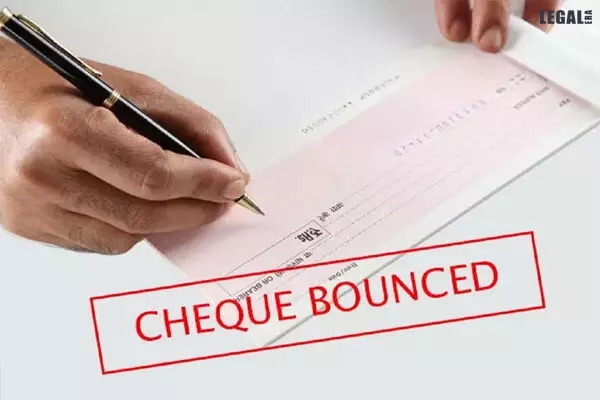- Home
- News
- Articles+
- Aerospace
- Artificial Intelligence
- Agriculture
- Alternate Dispute Resolution
- Arbitration & Mediation
- Banking and Finance
- Bankruptcy
- Book Review
- Bribery & Corruption
- Commercial Litigation
- Competition Law
- Conference Reports
- Consumer Products
- Contract
- Corporate Governance
- Corporate Law
- Covid-19
- Cryptocurrency
- Cybersecurity
- Data Protection
- Defence
- Digital Economy
- E-commerce
- Employment Law
- Energy and Natural Resources
- Entertainment and Sports Law
- Environmental Law
- Environmental, Social, and Governance
- Foreign Direct Investment
- Food and Beverage
- Gaming
- Health Care
- IBC Diaries
- In Focus
- Inclusion & Diversity
- Insurance Law
- Intellectual Property
- International Law
- IP & Tech Era
- Know the Law
- Labour Laws
- Law & Policy and Regulation
- Litigation
- Litigation Funding
- Manufacturing
- Mergers & Acquisitions
- NFTs
- Privacy
- Private Equity
- Project Finance
- Real Estate
- Risk and Compliance
- Student Corner
- Take On Board
- Tax
- Technology Media and Telecom
- Tributes
- Viewpoint
- Zoom In
- Law Firms
- In-House
- Rankings
- E-Magazine
- Legal Era TV
- Events
- Middle East
- Africa
- News
- Articles
- Aerospace
- Artificial Intelligence
- Agriculture
- Alternate Dispute Resolution
- Arbitration & Mediation
- Banking and Finance
- Bankruptcy
- Book Review
- Bribery & Corruption
- Commercial Litigation
- Competition Law
- Conference Reports
- Consumer Products
- Contract
- Corporate Governance
- Corporate Law
- Covid-19
- Cryptocurrency
- Cybersecurity
- Data Protection
- Defence
- Digital Economy
- E-commerce
- Employment Law
- Energy and Natural Resources
- Entertainment and Sports Law
- Environmental Law
- Environmental, Social, and Governance
- Foreign Direct Investment
- Food and Beverage
- Gaming
- Health Care
- IBC Diaries
- In Focus
- Inclusion & Diversity
- Insurance Law
- Intellectual Property
- International Law
- IP & Tech Era
- Know the Law
- Labour Laws
- Law & Policy and Regulation
- Litigation
- Litigation Funding
- Manufacturing
- Mergers & Acquisitions
- NFTs
- Privacy
- Private Equity
- Project Finance
- Real Estate
- Risk and Compliance
- Student Corner
- Take On Board
- Tax
- Technology Media and Telecom
- Tributes
- Viewpoint
- Zoom In
- Law Firms
- In-House
- Rankings
- E-Magazine
- Legal Era TV
- Events
- Middle East
- Africa
Authorised signatory cannot be treated as Drawer of cheque for the purpose of interim compensation for dishonour of cheque: Bombay High Court

Authorised signatory cannot be treated as Drawer of cheque for the purpose of interim compensation for dishonour of cheque: Bombay High Court
Observes that the 'drawer' cannot be interpreted to include the witness under the Negotiable Instruments Act
The Bombay High Court has held that a person authorized by a company to sign cheques on its behalf will not be considered the ‘drawer of the cheque’ for the purpose of interim compensation under the Negotiable Instruments Act, 1881.
In the Lyka Labs Limited & Anr s. State of Maharashtra & Anr case, Justice Amit Borkar held that in such circumstances, the authorised signatories cannot be directed to compensate the complainant.
The judge passed the order in a clutch of petitions, including one by former Videocon chairperson Venugopal Dhoot.
Under Section 143A of the NI Act, the courts are conferred with powers to direct the drawer in an appeal to deposit a minimum sum of 20 percent of the fine or compensation awarded by the trial court.
The provision was introduced to provide relief to the drawees from undue delay in the final resolution of the dishonoured cheque.
But the pre-condition to attract penal action for dishonour of cheques under the NI Act is that the cheque must be drawn on an account maintained by the drawer. It could be an individual or a legal entity, but the principal liability is imposed on the drawer.
Thus, the court observed that the expression 'drawer' could not be interpreted to include the signatory of the cheque.
The bench specified that in the plea filed by persons (other than the drawer), against conviction under the NI Act, a deposit of a minimum sum of 20 percent fine or compensation, was not necessary.
While suspending the sentence under the Code of Criminal Procedure, Justice Borkar, however, held that in other appeals, the power to direct the compensation deposit was available with the appellate court.



